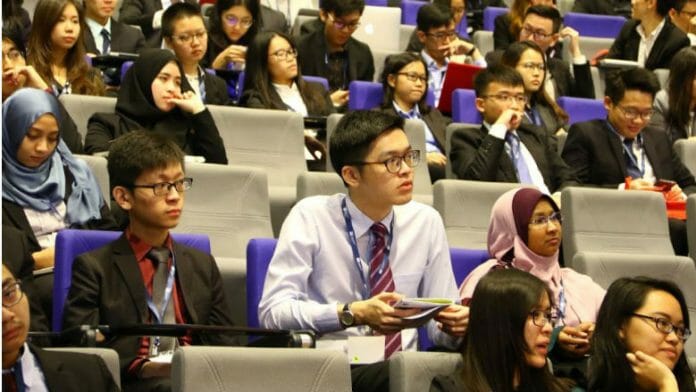By Dr. Syed Alwee Alsagoff
Talent Shortage Sparks Immigration Rule Change
On the back of the revelation of an acute talent shortage for graduates in the high-tech sector coveted by foreign investors, the government has announced several new immigration rules under its Visa Liberalisation Plan (effective 1st December 2023) which includes a 12-month post study work pass named “Graduate programme” applicable to international students from 23 countries who have completed their Bachelor’s degree or higher at any Institution of Higher Education in Malaysia.
However, this programme has sparked mixed reactions. While some hail it as a positive step towards attracting international students, others argue that its limitations and lack of clarity it falls short of being a truly competitive and effective initiative.
Appealing on the Surface, But Concerns Linger
On the surface, the programme presents a golden opportunity for graduates to immerse themselves in the Malaysian workforce, potentially leading to long-term career prospects. This influx of fresh talent and diverse perspectives could be a boon for skill-hungry sectors, fostering innovation and economic growth.
However, critics point out the initiative’s restrictive nature as a major hurdle. Limiting eligibility to specific countries raises concerns about fairness and inclusivity, potentially excluding a wider pool of talented individuals who could significantly contribute to the Malaysian economy.
Furthermore, the one-year timeframe appears arbitrary and inadequate, particularly for professions requiring extensive training periods. This brevity creates uncertainty for graduates, hindering their ability to plan for the future and potentially leading them to seek opportunities in other countries with more stable career paths.
Adding to the concerns is the lack of transparency surrounding the selection process and program details. Many prospective students remain confused and hesitant due to the ambiguity, potentially deterring them from even considering Malaysia for their studies or post-graduation career plans.
Learning from Global Trends
Malaysia’s programme isn’t alone. Recognising the value of international graduates, even countries like Singapore, Denmark, UAE and Taiwan recently announced attractive post-study work options, including longer durations and flexible paths.
Singapore’s two-year Employment Pass (with a transparent “Self-Assessment Tool” in their Ministry of Manpower website) allows graduates to find employment across all sectors, while Denmark’s three-year Residence Permit grants near-unrestricted work authorisation. UAE’s 5- year long-term visa and Taiwan’s one-year Open Work Permit (optional 2 years) offers flexibility, letting graduates explore different career paths before committing.
This trend is likely to continue, with more countries expected to join the fray. The competition for international students is heating up, and those offering the most attractive opportunities will be best positioned to attract the brightest minds. By offering post-study work rights, countries are not just attracting talent, they are investing in their future prosperity.
A Call for a More Comprehensive Approach:
Moving forward, Malaysia needs a more comprehensive and well-defined post-study work program. This should include:
• Expanding eligibility to a wider range of countries based selection on merit and potential contribution, not just nationality.
• Extending the permit duration to cater to diverse career paths and fostering long-term commitment.
• Providing clear guidelines and a transparent selection process to clearly communicate eligibility criteria, application procedures, and selection timelines to ensure fairness and attract qualified candidates.
• Offering additional support services like facilitating job placements, mentorship programs, and networking opportunities to help graduates transition smoothly into the workforce.
Fundamentally though, Malaysia’s efforts to attract international talent are raising concerns about neglecting the needs of local graduates facing underemployment.
While data shows high employability rates (85.5% in 2020), a recent Khazanah Research Institute study reveals a worrying trend: 1.68 million graduates are stuck in skill-related underemployment, a 7.9% increase in just one year. This mismatch between skills and available jobs begs the question: how can Malaysia balance its international recruitment goals with ensuring equitable opportunities for its own citizens?
The affordability of education also throws a wrench into the equation. Private university fees for locals in Malaysia are significantly higher compared to other developed nations like Australia and Canada.
This translates to a hefty burden for local graduates, who require an average of 1.33 years’ salary to repay their tuition debts – higher than in Singapore, Canada, and the US. This leaves them struggling to manage their finances, highlighting the need for a more balanced approach to funding higher education.
While keeping international fees low attracts foreign students (currently 12% of private university enrolment), research reveals a missed opportunity. Compared to competitors like Australia (400%) and Canada (400%), Malaysia only charges international students 20-40% more than locals.
This limits revenue generation, with the country’s annual income from international students falling far short of the OECD average (USD2 billion versus USD12 billion). Considering the higher economic and social costs associated with managing international students, this discrepancy demands attention.
The solution lies in finding a middle ground. Raising international fees moderately, coupled with stricter guidelines on fee increases, could generate funds for scholarships and financial aid, supporting underprivileged Malaysian students.
Additionally, exploring alternative fee structures for international students, aligning with global trends, could boost revenue without sacrificing affordability for locals.
The Bottom Line
Ultimately, Malaysia must strive for a win-win situation. Attracting international talent is crucial, but it shouldn’t come at the expense of its own Rakyat. By ensuring equitable access to education, investing in skill development, and exploring innovative funding models, Malaysia can achieve its international ambitions while nurturing its homegrown talent, creating a balanced and sustainable future.
The author is a Fellow of Majlis Profesor Negara.









